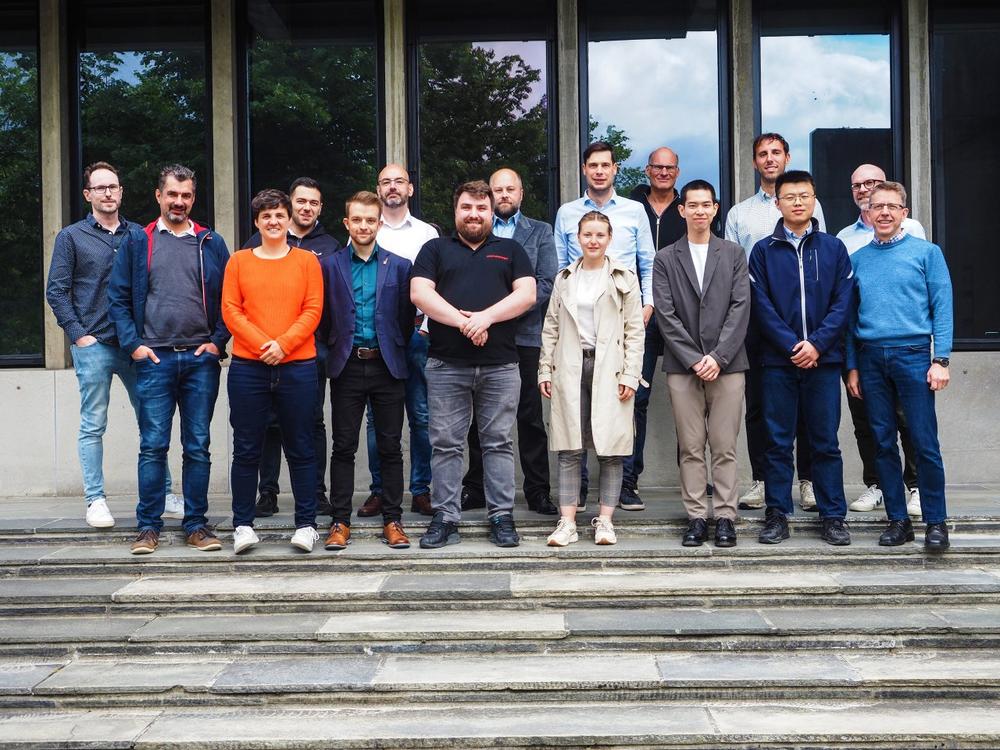Additive manufacturing of multi-material components in high volumes: paving the way for future applications

Breaking News:
Kathmandu Nepal
Dienstag, Feb. 3, 2026

After the official kick-off of the project on January 1, 2024, the mid-term meeting is now taking place at Robert Bosch GmbH in Renningen. All eight European project partners from Germany, Italy, Poland, Denmark and the Czech Republic will come together to present the project progress in each of the 10 work packages to the European Commission and to discuss the development work of the first 18 months.
To enable both well-founded research into the physical fundamentals and rapid industrial implementation of the ambitious project goals, partners from industry and science are working hand in hand in GlobalAM. The European project consortium is particularly pleased with the project’s first major milestones in research into the process-related interrelationships:
“We have developed multiple classes of models that allow us to calculate the morphology of the melt pool for different scenarios e.g. with or without powder, over inclined surfaces, keyhole situation, etc. (so-called melt pool models). In parallel, we have developed different process multi-scale approaches such as flash heating or agglomerated heat sources to enable prediction of thermal and mechanical conditions (residual stresses, deformation, etc.) over an entire part within an affordable timeframe needed for industrial partners (so-called part-scale models).” explains Prof. Mahamad Bayat from the Technical University of Denmark, describing the current state of modelling and simulation.
Johanna Zeisberg from the University of Kassel explains the state of the art in residual stress analysis as follows: “We employ various X-ray diffraction techniques and combine them to address the microstructural characteristics of PBF-LB/M components and to enable precise determination of residual stresses. A key objective of the project is also the fabrication of PBF-LB/M components on ceramic substrates. Due to the differing mechanical properties of the PBF-LB/M component and the ceramic, the residual stresses present in the ceramic are of particular interest as well. By utilizing different diffractometers, we are able to accurately determine the stress state within a defined depth in these materials."
“We are pleased that the project is currently on schedule and that initial findings have already been published in scientific journals,” says Dr. Torsten Hermanns of EurA AG, responsible for dissemination and exploitation.
Background:
GlobalAM is an acronym for ‘Enabling laser powder bed fusion for high precision mass production of multi-material components on dissimilar substrate materials’ and connects 8 partners from industry and science along the entire value chain. These include Robert Bosch GmbH (Germany), the University of Kassel (Germany), EurA AG (Germany), the Technical University of Denmark (DTU), Amazemet (Poland), Safina (Czech Republic), Politecnica di Milano (Italy) and Prima Additive (Italy). The project will run for three years, and the EU funding amounts to around 4 million euros. Further information on the project is available under the Grant Agreement number 101138289 or at www.globalam-project.eu.
Die EurA AG ist eine internationale Innovationsberatung und zählt zu den führenden Beratungshäusern für Forschung, Entwicklung und Markteinführung innovativer Produkte. Zu den Mandanten zählen Unternehmen aller Größenordnungen und Branchen, Forschungseinrichtungen und Kommunen. EurA begleitet die Klienten dabei, Ideen für Innovationen zu generieren, neue Produkte und Dienstleistungen zu entwickeln und diese international zu vermarkten. Der Hauptsitz der EurA AG befindet sich seit der Firmengründung 1999 in Ellwangen und stellt mit Niederlassungen in ganz Deutschland sowie in Portugal, Belgien und Bulgarien Kundennähe sicher.
EurA AG
Max-Eyth-Str. 2
73479 Ellwangen
Telefon: +49 (7961) 9256-0
Telefax: +49 (7961) 9256-211
http://www.eura-ag.com
![]()